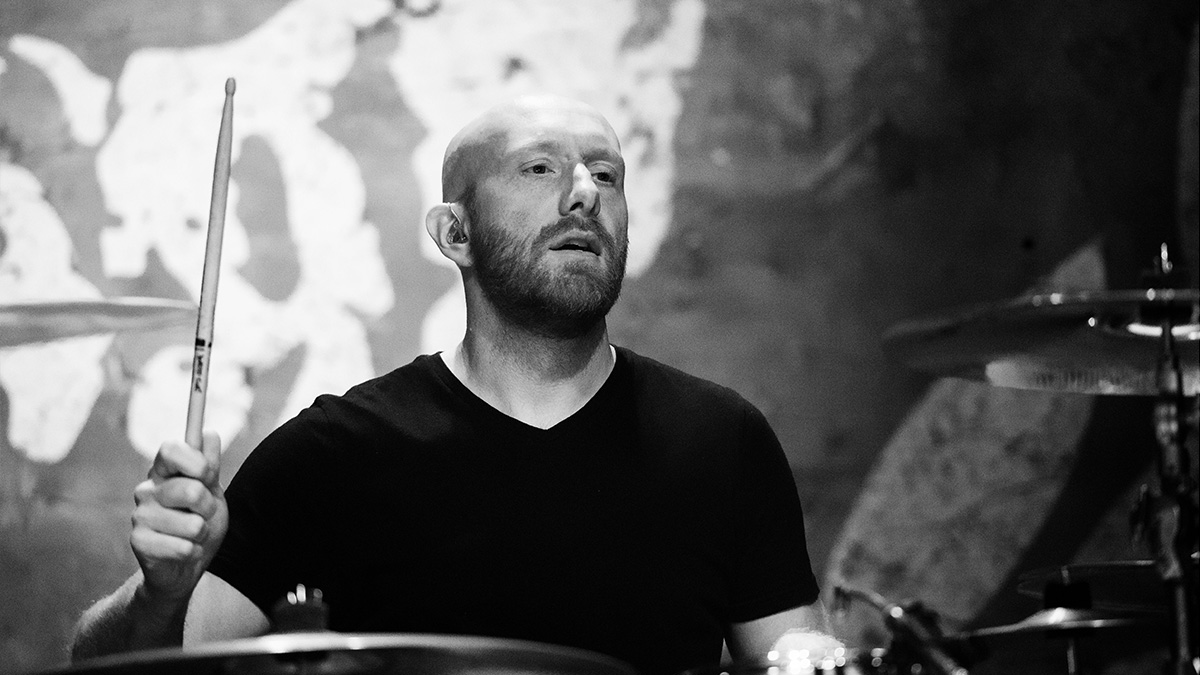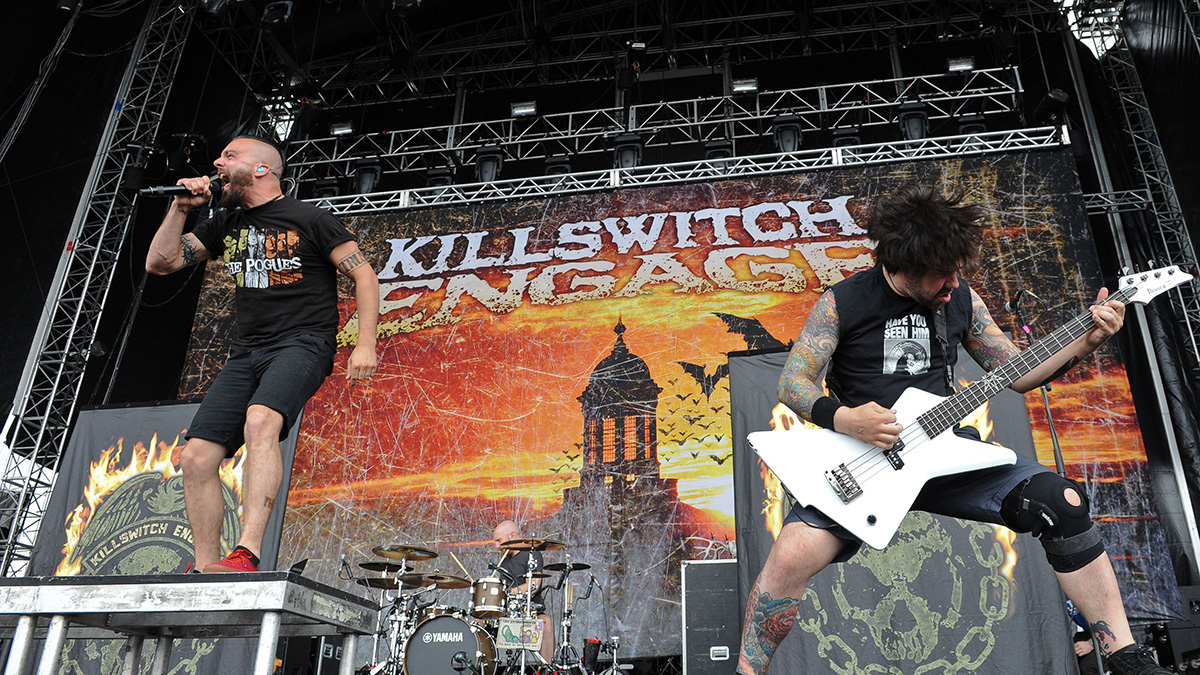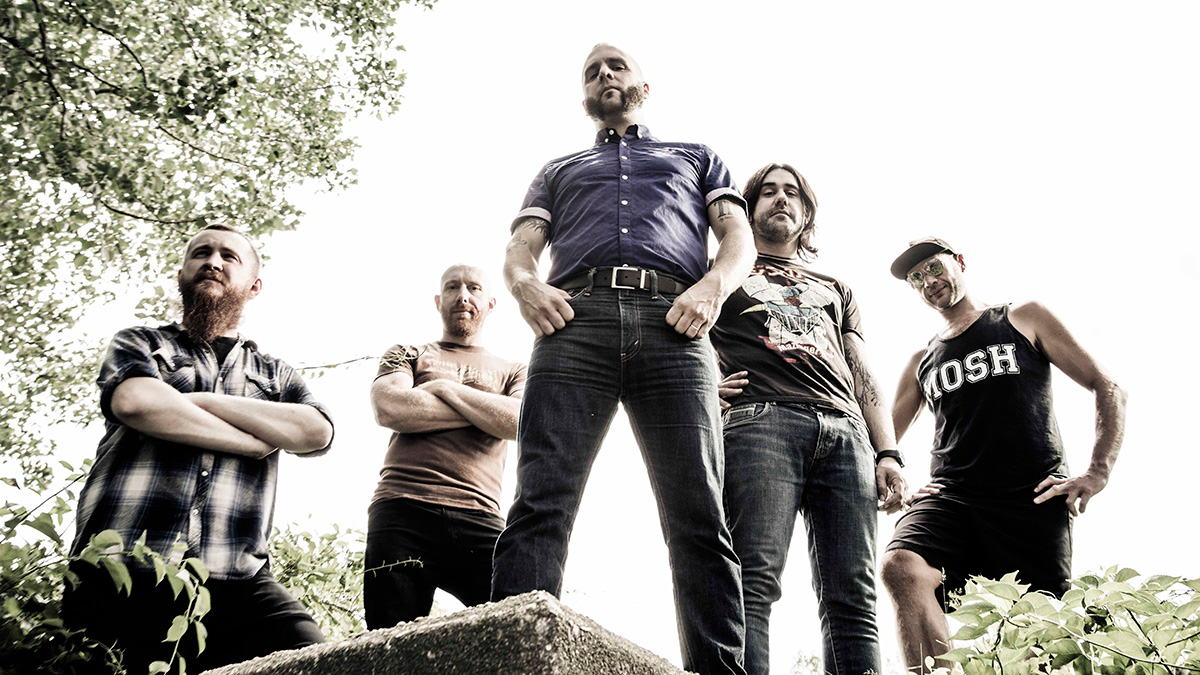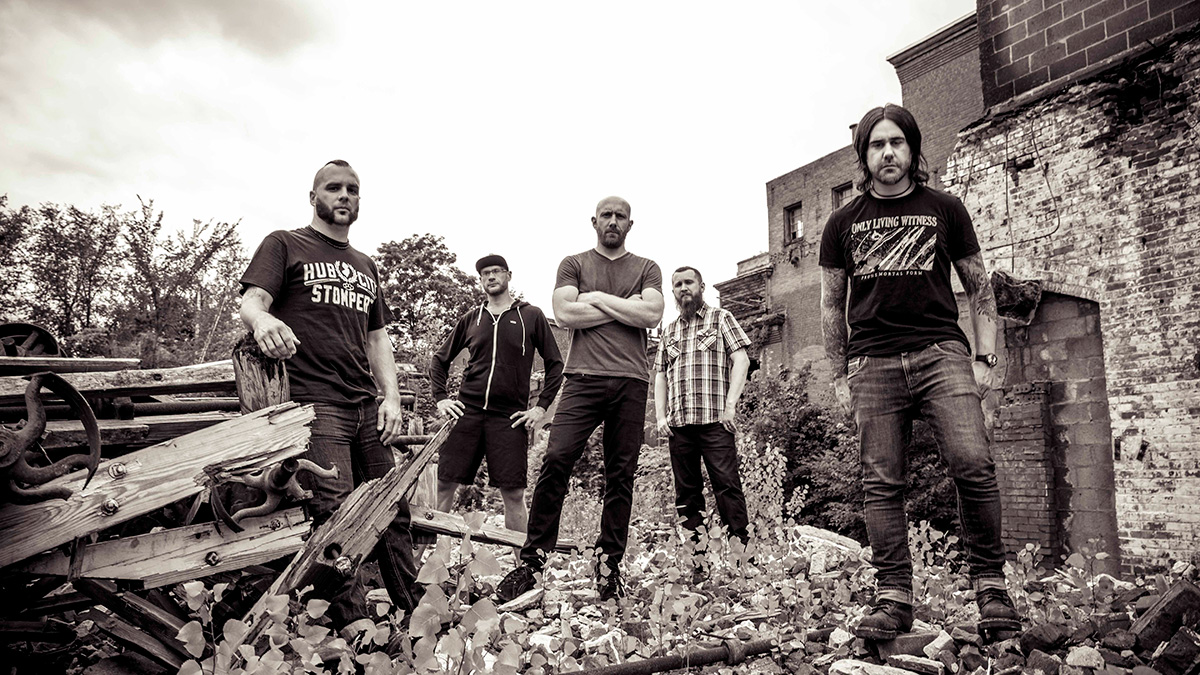Killswitch Engage's Justin Foley: my top 5 tips for drummers
Respecting gear, staying fresh and the dangers of a whiskey diet

Killswitch Engage's Justin Foley: my top 5 tips for drummers
Metalcore pioneers Killswitch Engage are back with album seven, Incarnate, and drummer Justin Foley reveals that the key to the record was freshening things up.
“We tried something different this time and went to a studio we hadn’t been to before,” he says. “We went to this studio in San Diego called Signature Sound.
“It was awesome, it had the best drum room I’ve ever been in. As soon as I set up and started playing it sounded amazing. This is the best drum sound we’ve ever had on a record. When something works really well you don’t need to change it but we thought we could get some better tones by going to this studio.”
Justin beams that his quest for killer tone was aided in no small part by his brand new Yamaha kit.
“I had a new Yamaha Maple Hybrid kit,” he says. “That’s the best sounding drum kit I’ve ever had. So there I was in the best drum room, with the best drum sound and the best drum kit. That’s pretty awesome.”
The other thing that is pretty awesome is Justin’s playing on Incarnate. Seven albums in he continues to hit his stride behind the kit, that much is evident from album opener Alone I Stand.
“The first track is one of the most challenging that I’ve had to play. For me it’s fast, for death metal guys they’d probably fall asleep playing it but for me it’s wicked fast! Strength In The Mind is really fun as well, it’s got a groove that I really enjoy playing.”
The record has certainly hit a chord with fans, jumping into the top ten in the UK and the US.
“We are all really stoked with how the record has done. We were anxious to get it out there. It’s always a nervous situation when you put something new out because you never know, this might be the record where nobody cares about you anymore. Thankfully people still seem to care.”
As Killswitch prepare to lay waste to the main stage at this year’s Download festival, we caught up with Justin and got his top five tips for drummers.

1. Collaborate with your band mates
“Adam [Dutkiewicz, guitar] is very hands on with the drum parts. He played drums on the first Killswitch record and he is a great drummer.
“He thinks in drum parts and the songs that he demos have a completed drum arrangement. The cool thing is that he and I think differently as drummers, but we both think like drummers.
“I will come up with a part I wouldn’t think of and he will come up with a part he wouldn’t think of It’s like we have two drumming minds thinking about the songs. That enables us to come up with the right part for the song.
“We’ve aways worked well together. It’s always been easy for us to exchange ideas. He has always been open to part ideas that I have and vice versa. We understand each other.”

2. Learn to tune your kit
“Tuning and the amount of work that goes into drum tuning is important. When Adam tunes the drums he is really insistent on the drums being in tune, not just track to track but also take to take.
“We spend a lot of time checking the drums between takes and making sure the tom hasn’t slipped out of tune at all. This is all about patience because drum tuning isn’t the most exciting thing to do.
“The ability to tune will come from knowing your drums, you will learn to know that certain drums have certain tendencies. You don’t want to choke the drums, a drum will have a range where it will be at its most resonant and have its purest tune. Finding that is something you just need to use your ear for. The longer you do that the easier it will become.
“Being in a metal band,everything has got to be pretty perfect sound wise, you can’t have a record in our genre sounding pretty raw. If you set up a drum kit with two room mics that is not going to work for this type of music. Everything needs to be precise with this music.
“That being said there is still plenty of room for real sounds in there. I like the drums to sound like real drums and a performance to sound like a real performance.
“It all comes back to patience. Patience is a big thing. I'm still struggling with that. Sometimes you can get beaten up by a drum part. I get pretty mad at myself when I don’t get a drum part right quickly. I am always struggling with that.
“It’s not a big deal, just relax and you will get the part. I get into the mindset of trying to attack something rather remembering to relax and let it happen.”

3. Stay fresh
“When we get done on a tour I like to get home and just chill for the first week and let my body rest a little bit. But after that first week I like to play a lot. I don’t play a whole lot of our stuff, I will put my iPod on random and just jam along to all of the stuff that’s on there.
“You don’t want to get to that point where it’s like you just go to the same fill every time, you need to keep it fresh.
“I think part of that is playing a whole bunch of different music I play along to my iPod. The more I try to think like other guys and learn other guy’s parts, the more music that is rattling around in my brain and hopefully that will come through when we are working in our music.
“That gives you a library of fills and parts in your head. The more music you expose yourself to the better the musician you will come. You don’t even have to like all of it, just understanding where other types of music are coming from is a big thing.
“On our current tour we’re playing different sets every night, mixing it up and I have been pushing for that for a long time. That’s another way that you keep things fresh, it helps you get out of the show rut and the show routine of, ‘Ok, here’s the part where you go to this side of the stage and then I did this..’ It keeps it from getting like Groundhog Day.”

4. Look after your gear... and yourself
“You need to respect your gear. It’s easy to take a beautiful wooden acoustic guitar and treat it like a musical instrument, but it’s not as easy to look at a piece of drum hardware as a musical instrument.
“But if you treat it with the same respect that you would give to the acoustic guitar then it will last and it will be reliable and it will hold up for you.
“I don’t even get through many sticks anymore. I think if you set your kit up so that everything is natural when you won’t be hitting things at weird angles and you won’t have your sticks exploding. I can now, most of the time, use one pair of sticks for a whole show.
“You need to look after yourself as well. It’s hard to get your rest on tour. It’s hard to get good sleep on a bunk, you’re getting rattled around a lot and you’re keeping strange hours.
“I don’t do a whole ton of weird stretches but I do make sure that my hands and my arms are well stretched out before I play. I haven’t had any issues or injuries yet, luckily.
“On this last run we did we were out for seven or eight weeks and I was feeling it a little bit at the end. I’m not good at the whole diet side of things but I need to start thinking of that because I’m not young any more.
“I drink a lot of beer and a lot of whiskey and I don’t have the best eating habits. They haven’t come back to bite we yet but that is probably right around the corner!”

5. Put in the prep work
“Alone I Stand from our new album is super fast and it’s got a weird time signature in there as well so that was one that I spent the most time doing some prep work on in the studio to make sure it came out well. That’s why being prepared is so important.
“You have to be prepared because once you track a song that’s just the beginning because you will be playing these songs live, so a challenging song is something you need to really work on and practice.
“We don’t use a click live so a big thing for me is practicing so you make sure you nail the tempos. I don’t want to get tempo anxiety while we’re playing live. The more that I play the songs the more I feel comfortable. When you get the adrenaline of playing live you might bump up the tempos by a couple of clicks but that’s no big deal.”

Rich is a teacher, one time Rhythm staff writer and experienced freelance journalist who has interviewed countless revered musicians, engineers, producers and stars for the our world-leading music making portfolio, including such titles as Rhythm, Total Guitar, Guitarist, Guitar World, and MusicRadar. His victims include such luminaries as Ice T, Mark Guilani and Jamie Oliver (the drumming one).
“I oversaw every element - not just the music and the lyrics and the melodies and the production, but also the merch and the fan clubs and everything”: Mike Portnoy talks about his years away from Dream Theater
“I’m surprised and saddened anyone would have an issue with my performance that night”: Zak Starkey explains why he got fired from The Who
“I oversaw every element - not just the music and the lyrics and the melodies and the production, but also the merch and the fan clubs and everything”: Mike Portnoy talks about his years away from Dream Theater
“I’m surprised and saddened anyone would have an issue with my performance that night”: Zak Starkey explains why he got fired from The Who









